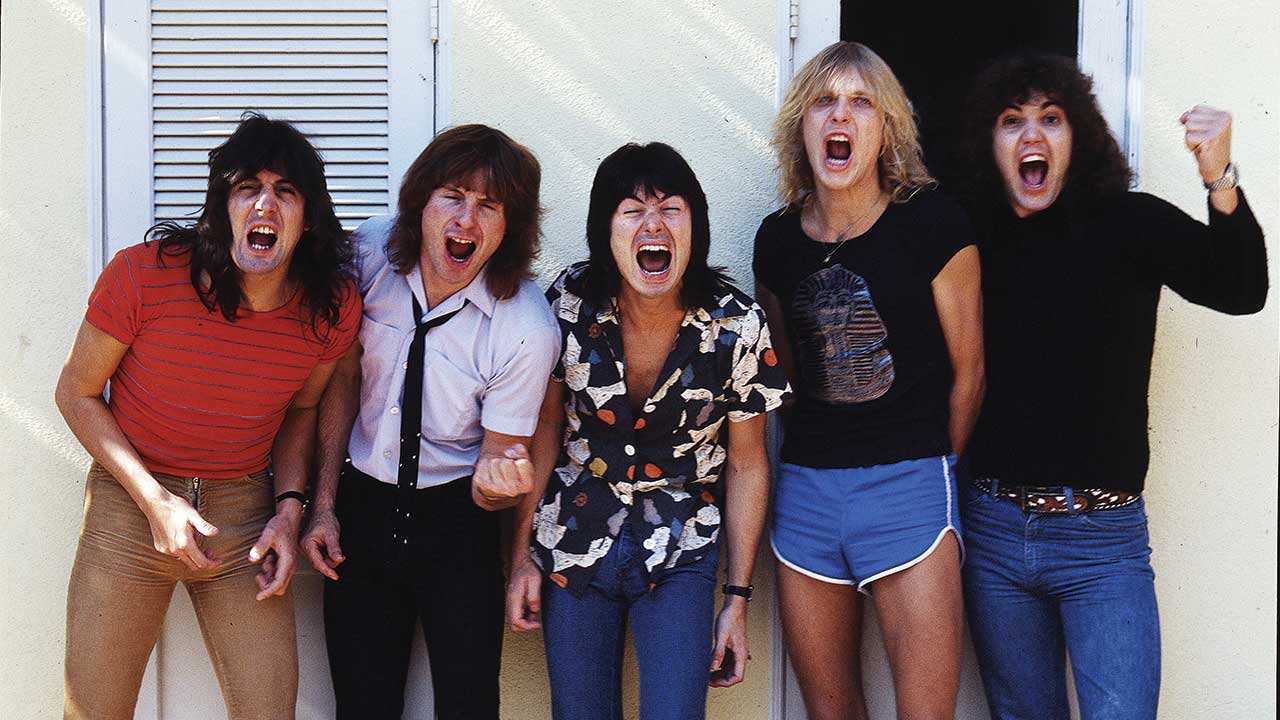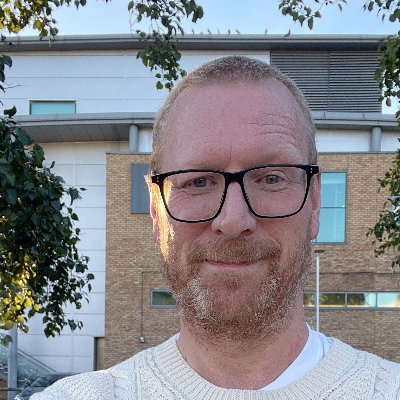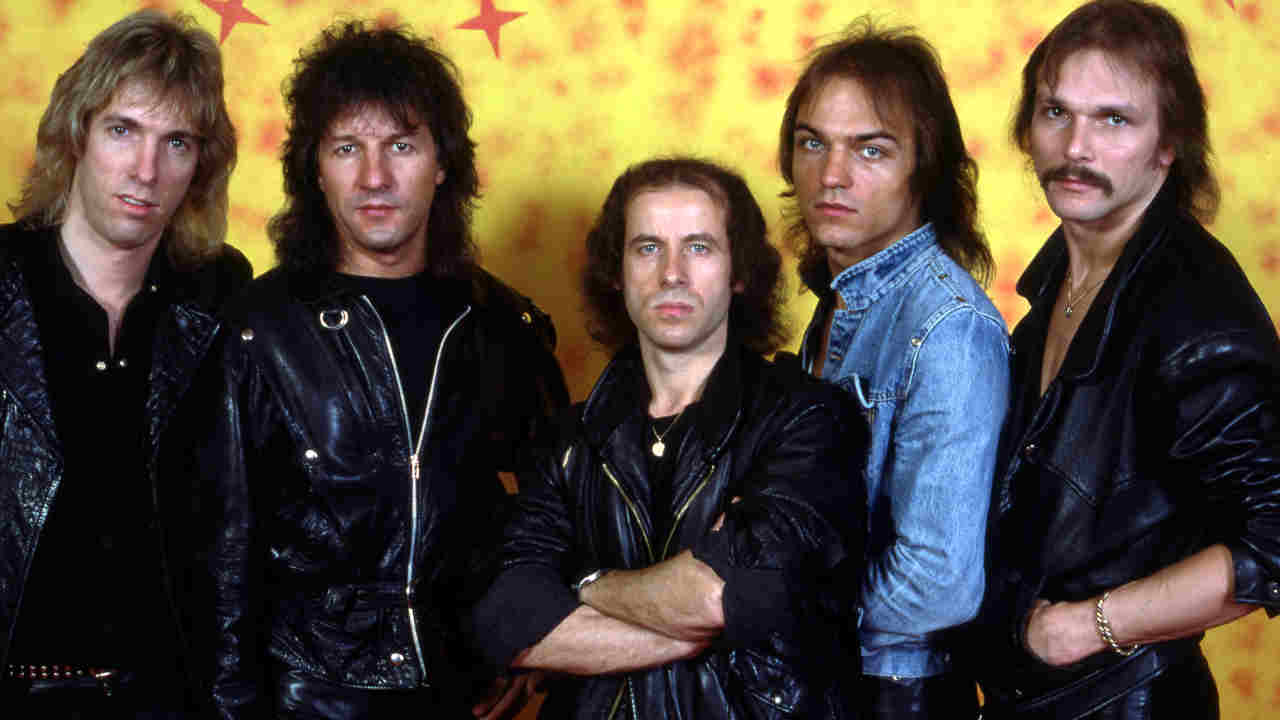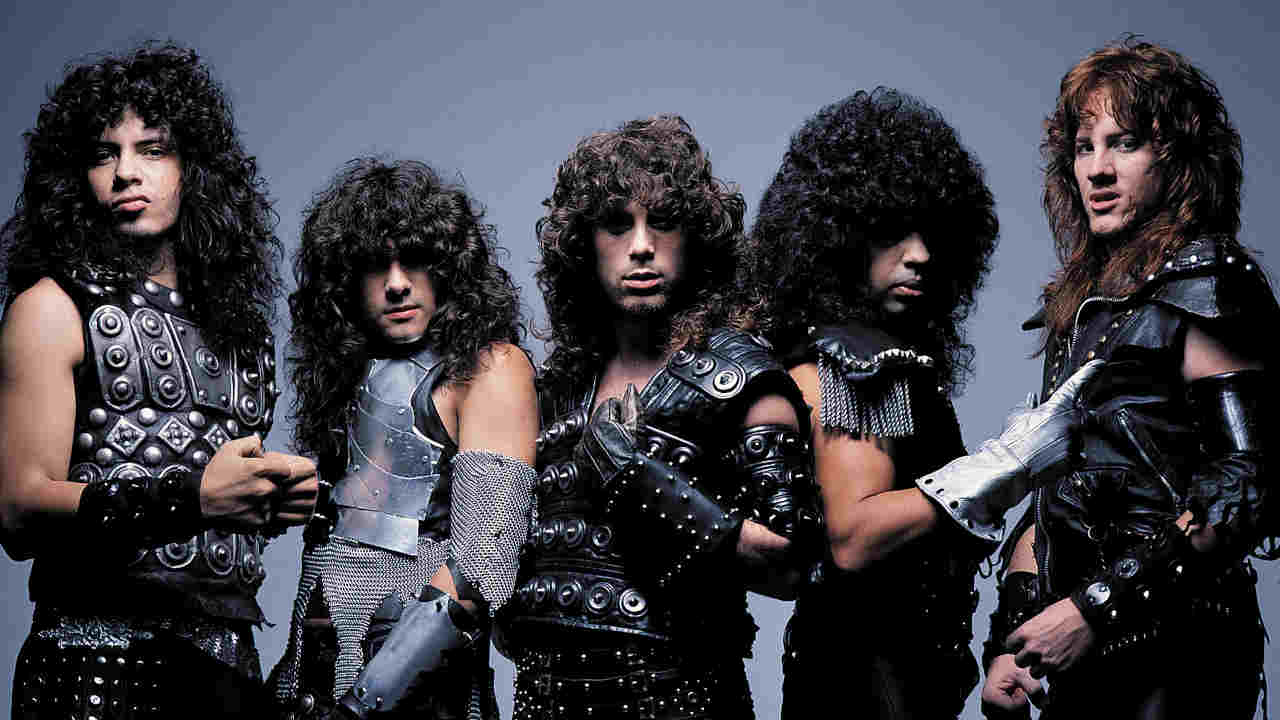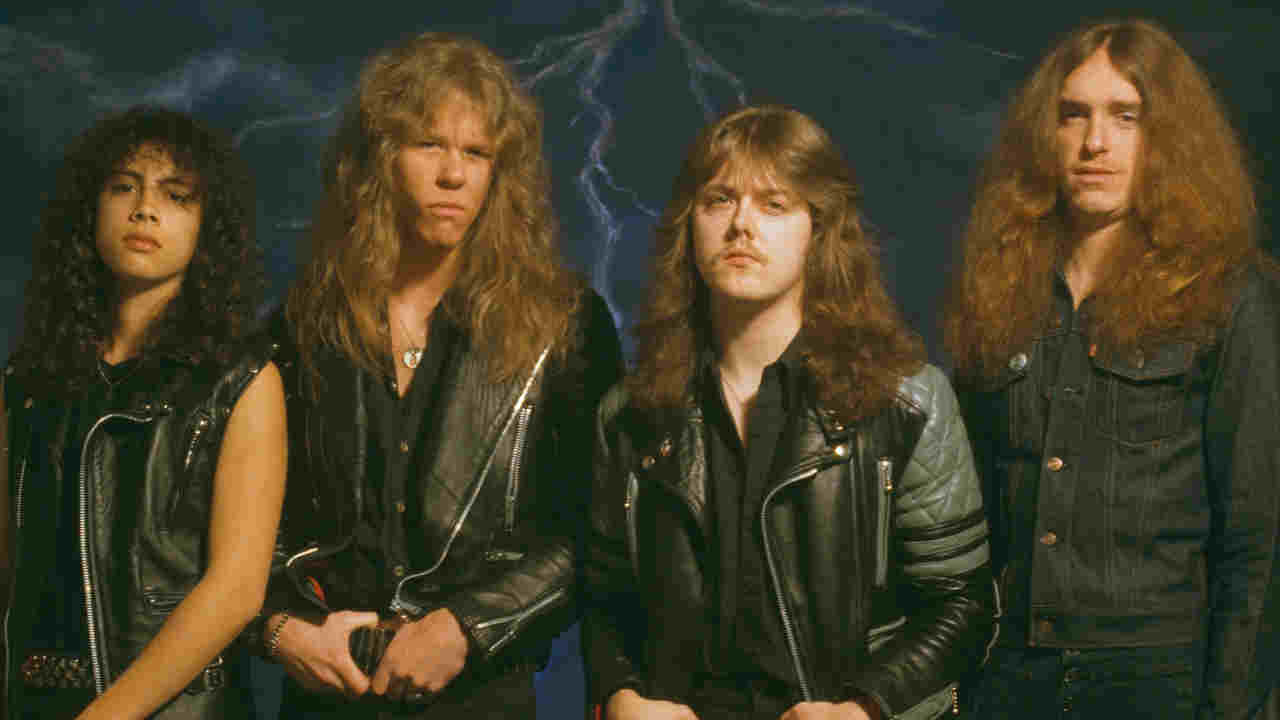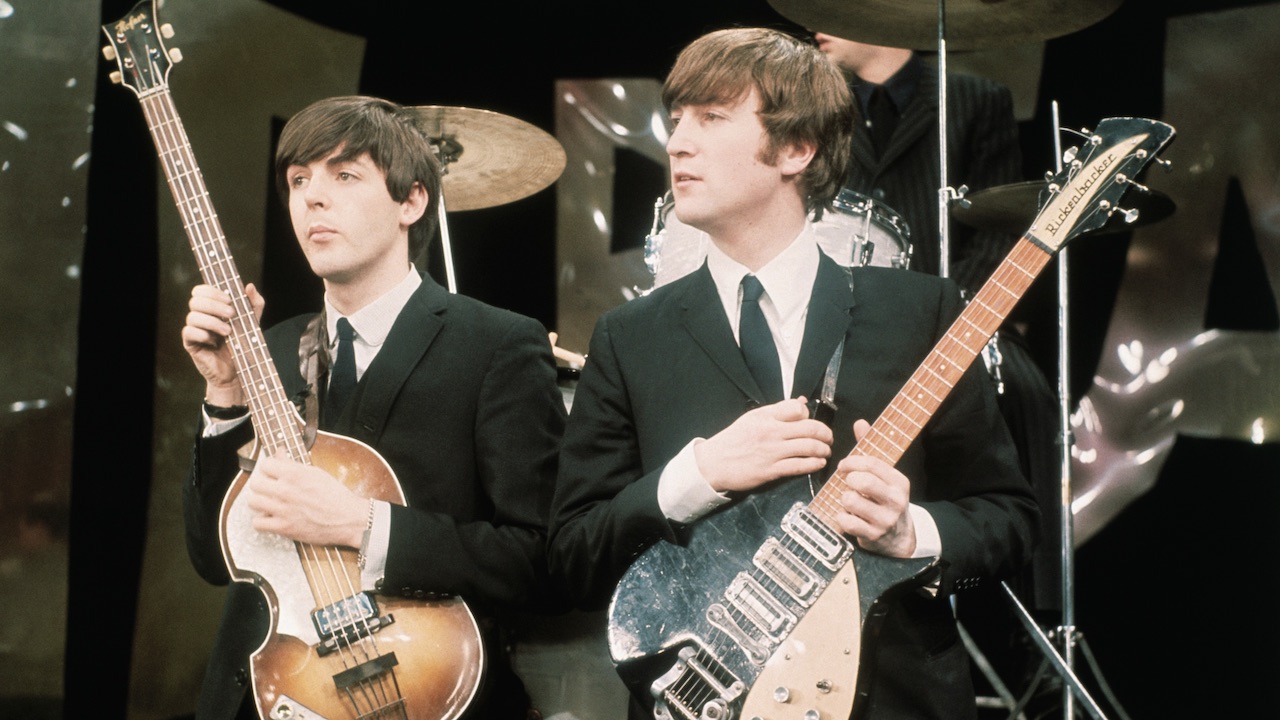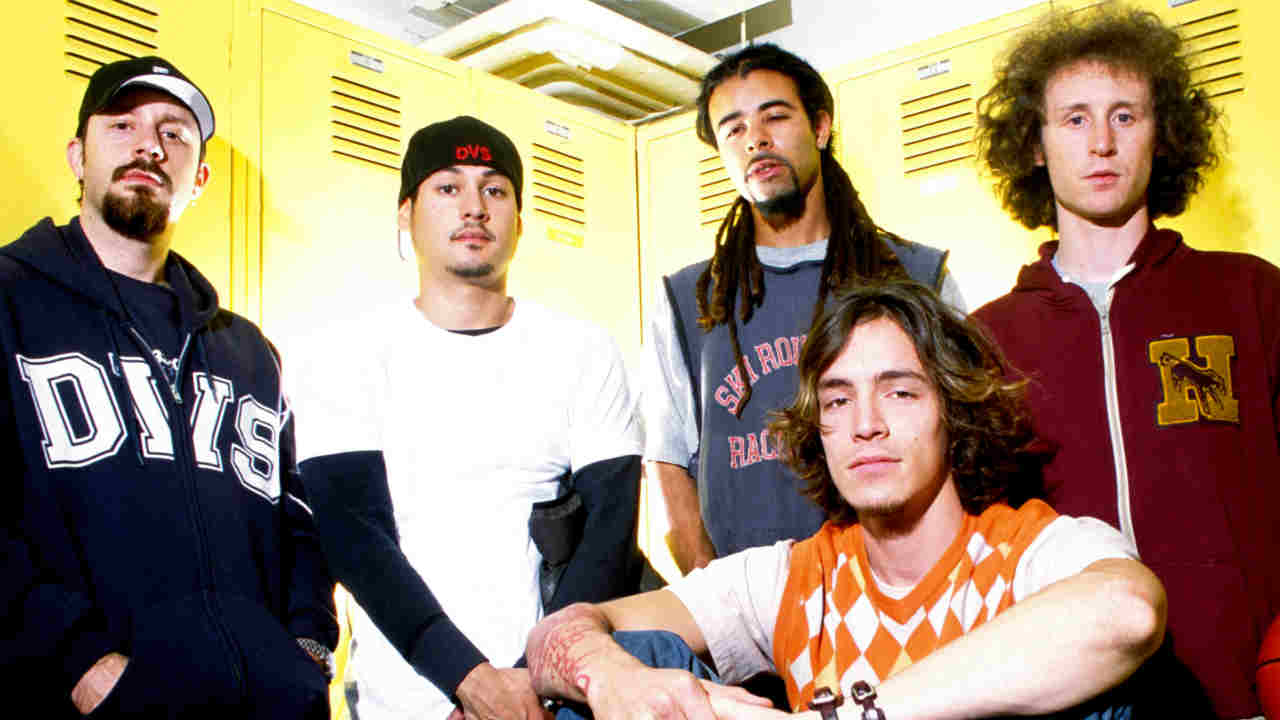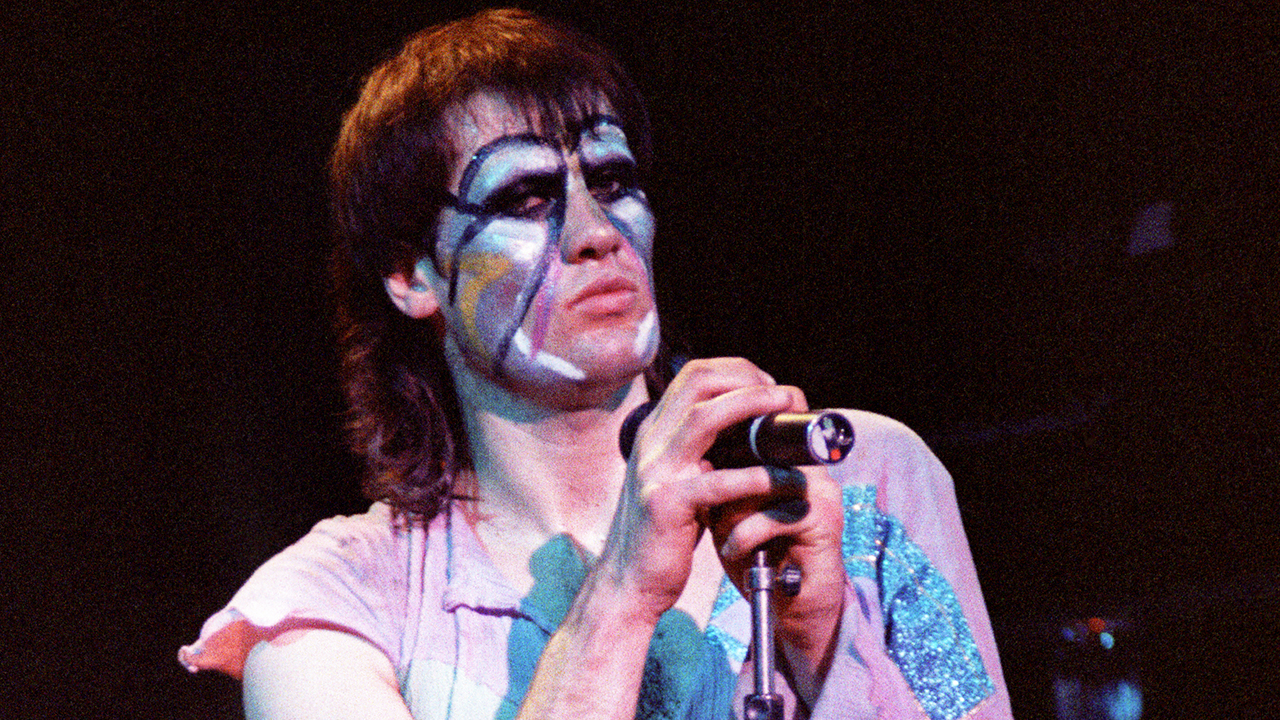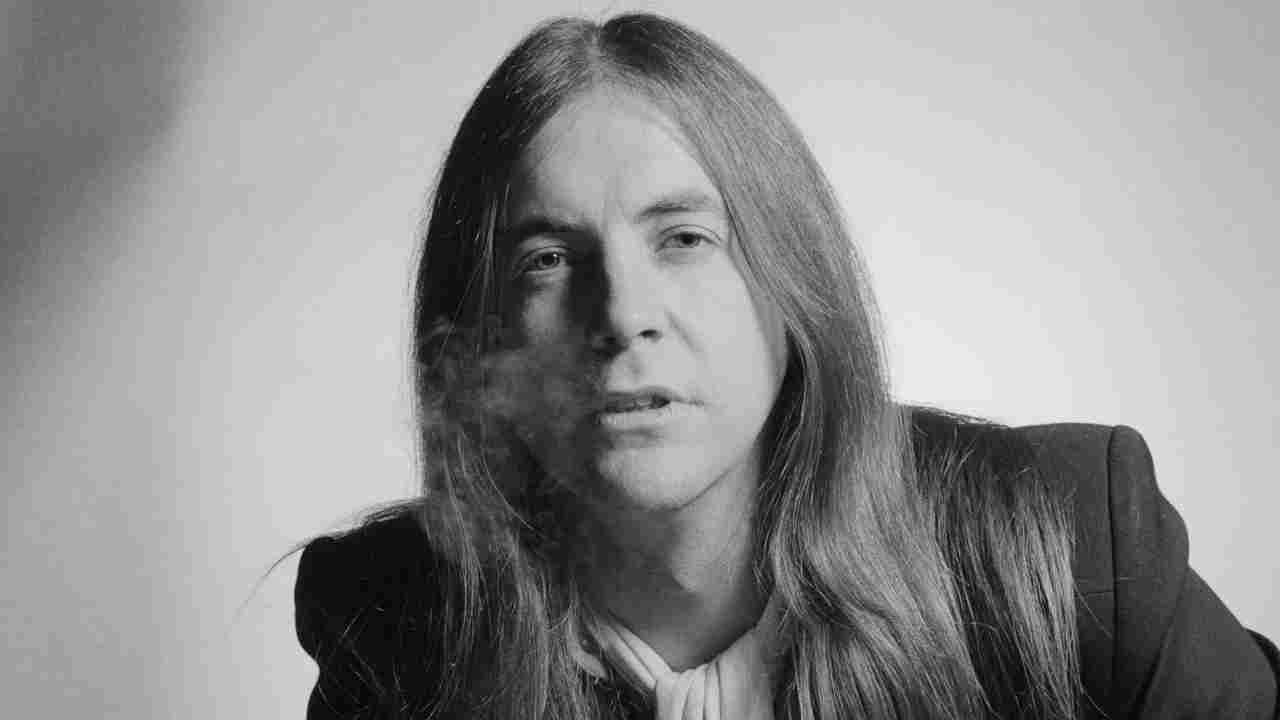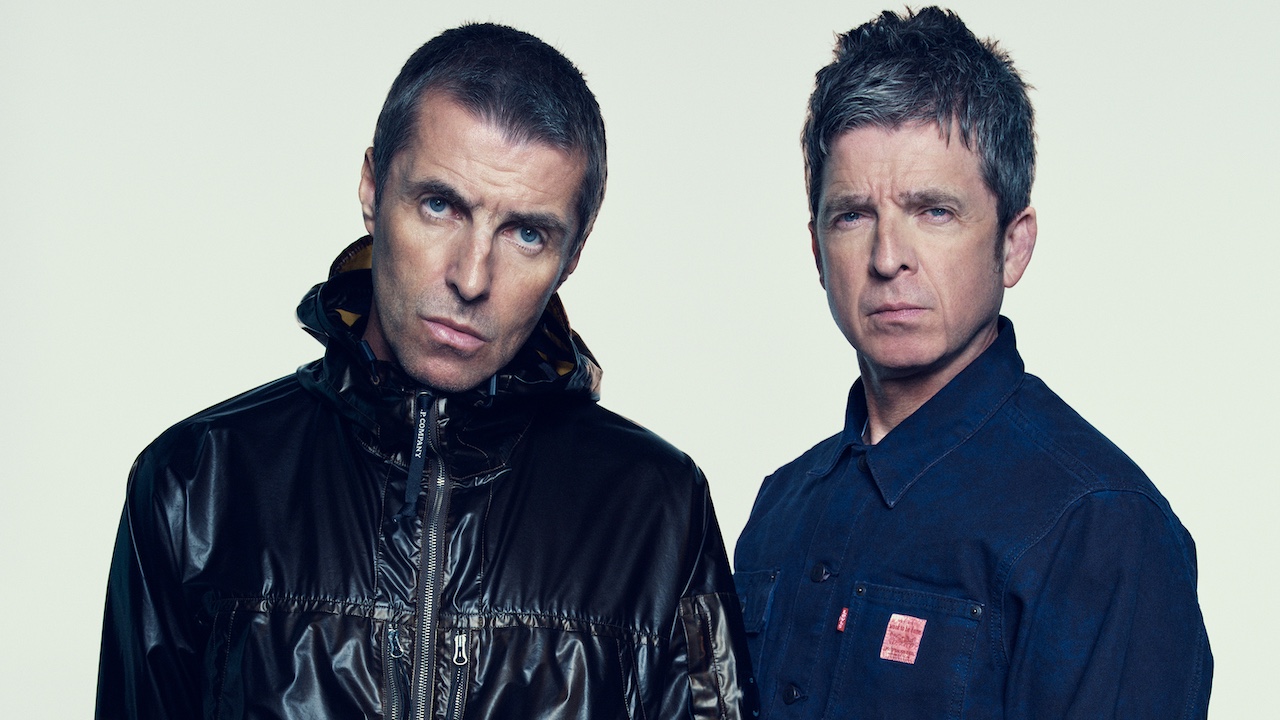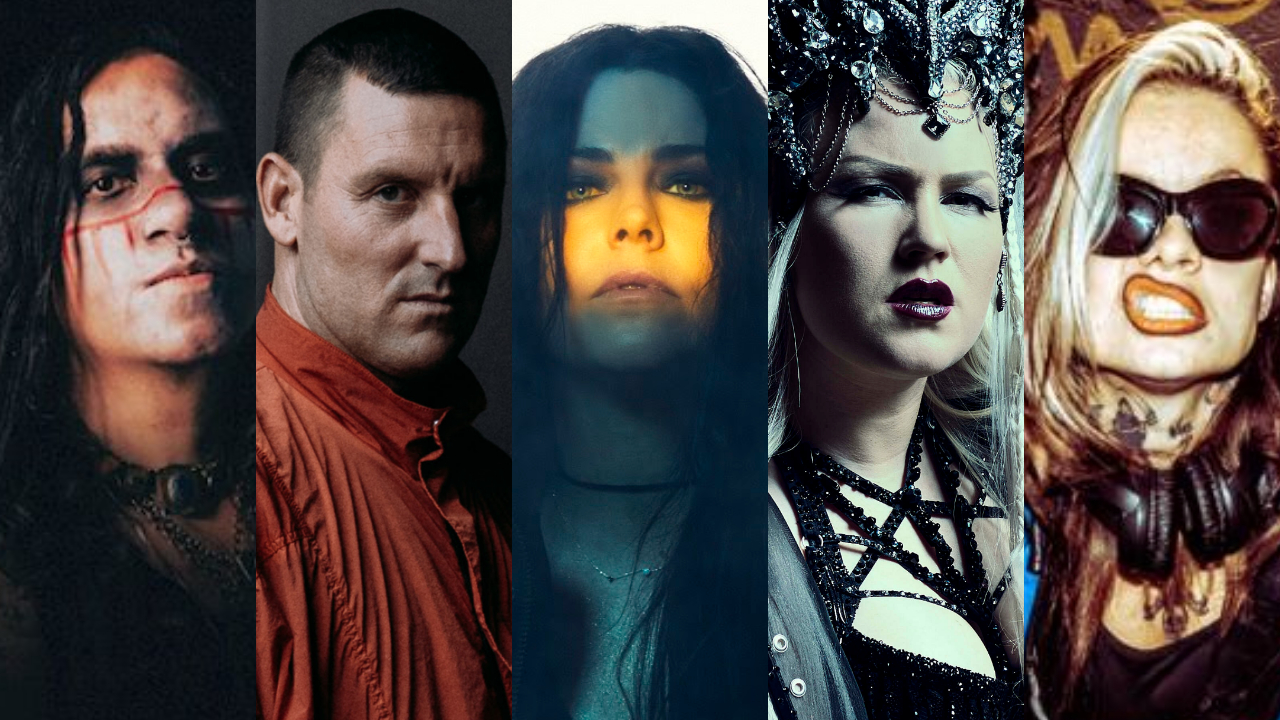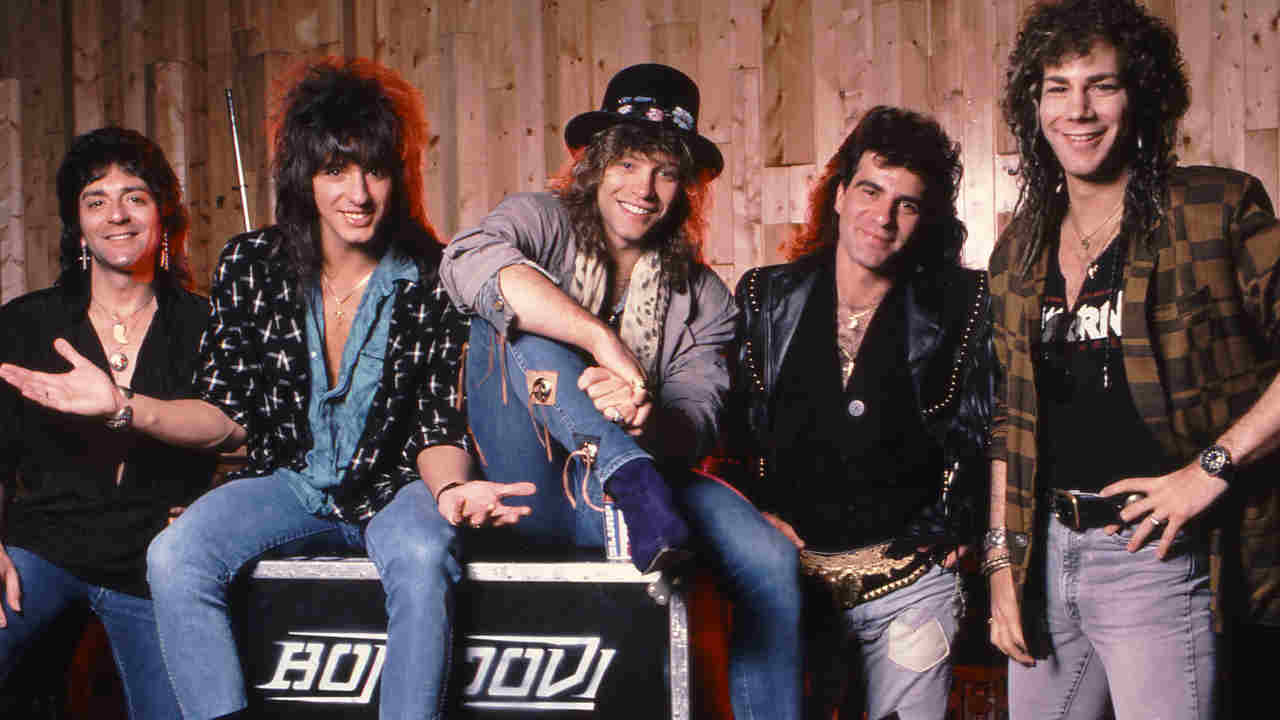It seems incredible now that a live album could be a band’s defining statement – as much a relic of the 1970s as the Raleigh Chopper and only TV three channels. But so it was.
For bands who never quite achieved great consistency on studio records, or who were never quite as comfortable in the studio as on stage, the live album was the perfect vehicle: part greatest hits, part introduction for newcomers, part proof that the band really could be as good as their supporters might claim. And it worked.
Just ask Thin Lizzy, for one. Or ask UFO, for whom Strangers In The Night was just as important as Live And Dangerous was for Lizzy.
“We was always more of a live band,” says UFO singer Phil Mogg. “We had a pretty cool set-list. We didn’t get to that until we reached the live album, though.”
That’s important. Because Strangers In The Night isn’t just a record of what UFO sounded like on stage in October ’78. It’s also a record of their transformation over five years since Michael Schenker had joined as lead guitarist – their transformation as players, as songwriters, as arrangers. It’s a record of how they became, for a while at least, a truly great rock band. The UFO that Schenker had joined were a very different group to the one he helped them become.
“Basically, they were a psychedelic rock band,” he says. “Instrumentally there wasn’t much going on, it was more atmospheric. But there was a completely different chemistry [with the new line-up]. You take one piece out and put another in and you get different outcomes.”
“I think at that point we were all living in a house in Bounds Green, dropping acid and going to the Roundhouse,” Mogg told me last year. “I guess we went from there to straightening up, thinking: ‘Do you really want to do this? How serious are you?’ Basically, we got serious. Not too serious, though.”

Over the course of five albums – Phenomenon, Force It, No Heavy Petting, Lights Out and Obsession – they went from a band who were trying to find their way to one that barrelled down the road. They toured unrelentingly, generating excitement and buzz, but never quite made the leap to the top echelon.
Often, in the US, they were an opening act, but that suited their dynamism and gave them the chance to hit hard.
“We were very lucky to get some good opening slots,” drummer Andy Parker says. “We were getting exposed to larger audiences. If you do a decent job a lot of those people will come and see you in the future, and that was working for us. I used to love that Special Guest slot, the second band on a three-band bill. You didn’t have to play for too long, the crowd was already warmed up and you could get home early. You could really hit them hard with a shorter set.”
A shorter set, and no headliner responsibilities, allowed the band to indulge themselves, too. Take the three shows they played with Fleetwood Mac in California in 1976. On the way to one of them, Mogg told me in 2012, they realised they were lacking in certain pick-me-ups, so they arranged to meet up with the April Wine touring party at a truck stop.
“So we got there, and this guy comes along with a briefcase chock-a-block with stuff. ‘Oh, this is great,’ we said. It was a bit like one of those movie scenes where they chop out a line that goes from here to next week. In our bravado we were: ‘Yeah!’ But by the time we reached the gig no one could talk. We were absolutely rigid. Time to go on, and we couldn’t move. We were on stage, absolutely stationary.”
So paralysing was the drug that Mogg could barely move his mouth to get the words out.
There was alcohol by the bucketload too.
“It seems comical now,” Parker says. “It was white wine for the sound-check, then beer, then on to the hard stuff in the evening. That was the good thing about the Special Guest slots, there was always booze left if you raided other people’s dressing rooms. We were doing cocaine and weed. The really heavy stuff, the really nasty stuff, didn’t come in till later. I never dabbled in that. I did quite a bit of blow, but then you end up staring at the ceiling at three in the morning when you have to be up in three hours.”
The arrival of Paul Raymond in July 1976, to play keyboards and rhythm guitar, was the thing that gave UFO the extra depth they needed.
“He completed the chemistry,” Schenker says. “He was very good at colouring in, and that made it perfect. He was an excellent songwriter, too. But he didn’t take all the credit for his writing, because he had a contractual situation.”
Pete Way, the bass player who was the band’s irregular heartbeat, was writing too, and UFO became a band in which every member was making the maximum possible contribution.
“Pete was writing dirty stuff, and I would put in a melodic chorus to it, like Lights Out, that would balance it out,” Schenker explains. “The keyboards coloured it. It’s incredible how Paul Raymond did the intro to Love To Love, which started as an instrumental I wrote, then it turned into a vocal song. And the colouring in Lights Out is really good.”
By autumn ’78, although relations with Schenker were already fraught there was a sense that the band they were on the brink of something.
“We were probably just about hitting our peak then,” Parker says. “Michael was still with the band. We were at the stage where we could do decent-sized arenas on our own. We would do three nights in Chicago, which was our biggest market.
"Before, we’d been doing them with the likes of Rush and Blue Öyster Cult and Foghat and Styx and Jethro Tull and those kinds of bands as Special Guests, but by this time we were doing them on our own.
“I always thought that while we made great studio albums, if you really wanted to know what UFO was about, go see us live. We were always a band that tried to include the audience. I’ve seen so many big bands that play at the audience – it’s all about what they want to do, rather than what the audience wants – but with this band we included the audience.”

Strangers In The Night was recorded over two nights in October 1978, in Chicago and Louisville. Ron Nevison, who had produced UFO’s two previous studio albums, was brought in again to oversee its completion.
“He wasn’t the easiest guy to work with, but man he was good at what he did.” Schenker says. “He was obnoxious. But he knew what he wanted and he knew what the end result had to be.”
There’s no doubting Nevison’s contribution to Strangers In The Night. It’s an album on which muscle and melody are in perfect balance, from front to back (and the bonus live sets that accompany the CD version of this year’s reissue prove that UFO could cut it without the need for additional studio work).
It’s a mixture of great songs and bravura performances – the out-and-out rockers have a force and attack missing from the studio versions (Doctor Doctor, especially, makes the original sound like a demo); the longer and more emotional tracks, such as Love To Love and Rock Bottom, have an expressiveness that heavy bands at the time rarely bothered to attempt.
But even as UFO reached their zenith, things were going wrong. The exact circumstances of Schenker’s departure remain cloudy – you’ll get a different answer depending on who you ask, and possibly which day of the week you ask them.
Parker is certain the band knew he was going to be leaving at the end of the US tour in autumn 1978. The version that will go down in history – because it’s on Wikipedia – has him leaving shortly after the final show of the tour, in Palo Alto on October 29. But according to Schenker he didn’t leave until the band were working on the mixing of Strangers.
What isn’t disputed is that relations between him and his bandmates, especially Mogg, had been deteriorating for some time. Schenker hated touring, and drank to combat his stage fright. After the success of Lights Out, rather than celebrating a breakthrough, he told his partner Gabi that this meant years more of being trapped.
“It happens to many bands: the moment they make it big, they all collapse,” he says. “And they get into a vicious cycle of being obnoxious and completely controlled by alcohol and drugs.”
He was also sick of Mogg, who he felt was violently aggressive. Indeed, even with decades of distance, mention of the singer still riles him. Five minutes after completing our interview, he calls me and embarks on a monologue that opens with:
“If you look at Iron Maiden, Steve Harris copied Pete Way, and the guitarists copied me, but the singer didn’t copy Phil Mogg. Same with Guns N’ Roses – a complete different vocal. Metallica – a complete different vocal. And Def Leppard – a complete different vocal. Strangers In The Night had an influence because of the guitar playing. It was the guitar playing that was copied by all of these bands…”
A few minutes later, he concludes: “It’s impossible for me to comprehend how people think. Why are people only seeing what they can’t get? People have a problem saying thank you. Instead of saying thank you, they say fuck you. Nobody is copying Phil Mogg, by the way. Goodbye.”
Then there were disagreements during the compiling of the album, at the Record Plant studio in New York, one being Schenker demanding they go for a different take of Rock Bottom from the one Nevison had chosen. By the time Strangers was released, on January 2 1979, Schenker was no longer in the band.
“He did an awful lot of walking, didn’t he?” Mogg says. “He used up the shoe leather. Dear oh dear. He’s always walking away from something.
"I can’t remember when he actually went. I remember him doing the album with as much enthusiasm as everybody else was putting into it. I remember that he wanted to keep replacing stuff, and in the end Ron said: ‘I ain’t fucking replacing shit. This is a live album.’ And Michael went: ‘Poor, poor Rock Bottom’, and walked out. We didn’t see him for a while."
The sad thing for all concerned was that this was happening when the band were at a high point. UFO moved on, to a poppier sound. Schenker rejoined the Scorpions, briefly, then formed his own band. Neither parties ever topped the music they had made up to then.
Money problems were arising, too. In 1980 UFO headlined the Reading Festival for a fee of £86,000, of which the band members saw £1,000 each, apart from new boy Neil Carter who got half that.
After UFO spluttered out in 1983, Mogg was so poor he had to go to live with a friend and sign on for unemployment benefit.
Strangers, though, was when things were special for UFO. It’s one of those rare live albums in which the interaction between all the band members is perfect – not just Schenker’s spotlit lead playing, but also Mogg’s command of the audience (interestingly, Schenker notes the “monotony” of Mogg’s voice, then observes that it combined perfectly with his own melodic sense to produce something greater than they could have been separately).
Parker’s drumming is combustible. Remember too the contributions of the two members who have passed away: Way and Raymond were just as integral to the sound of Strangers In The Night as Mogg and Schenker were. The just-released expanded version of the album stands as a tribute to the pair of them.
Nowadays, even Schenker, who was merciless about its inadequacies after its release, has made his peace. “Today Strangers In The Night sounds good to me, because I’m not in it. I have distance and I hear it differently. I am affected by it differently because it became popular. And everybody likes it and you automatically become part of that wave. Everything influences your later opinion.”
Parker’s reaction is less complex: “We were at the apex of our career, and it just exemplifies the band. It will always be my favourite.”
And, let’s be honest, mine and yours too, probably. It’s UFO’s defining statement.
Strangers In The Night expanded deluxe edition is out now via Chrysalis.
